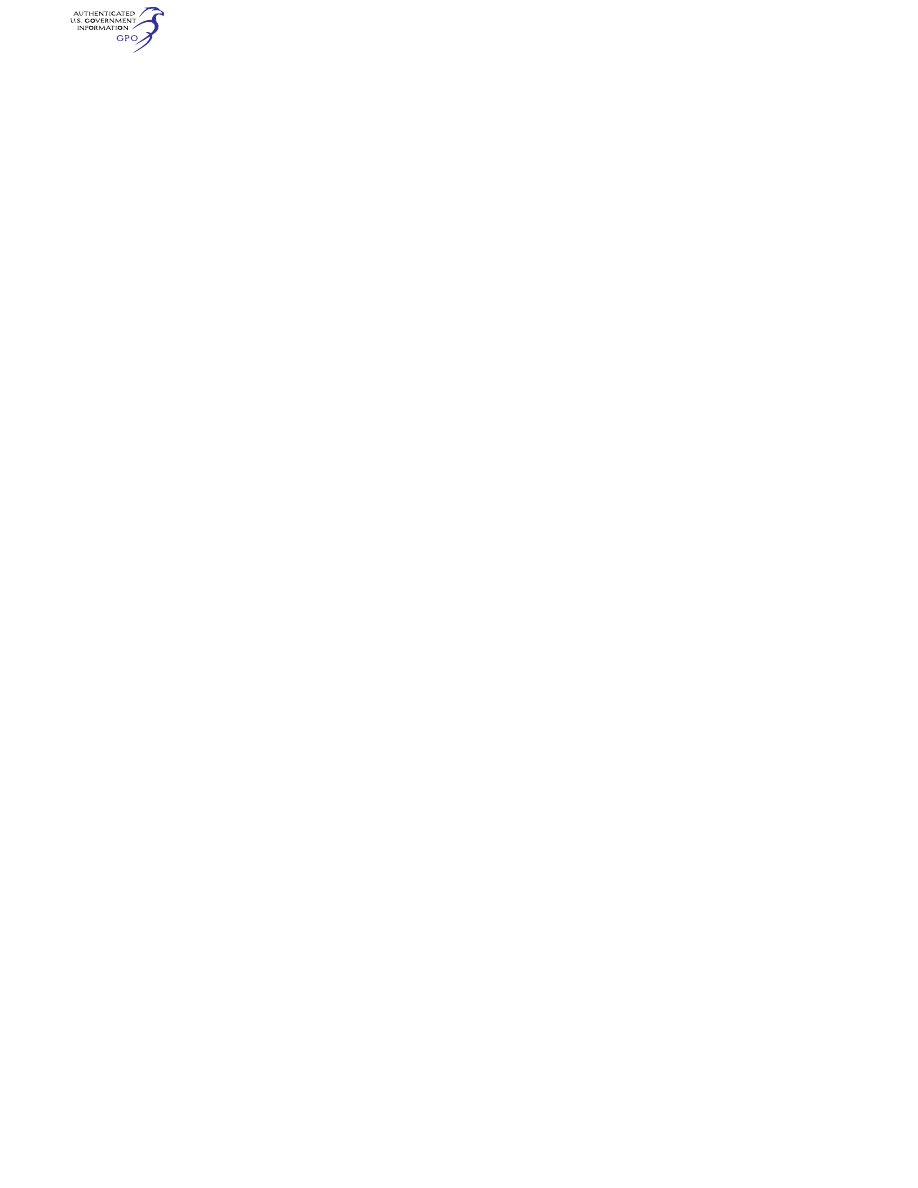
764
14 CFR Ch. I (1–1–24 Edition)
§ 35.42
demonstrate that the propeller is capa-
ble of further operation without main-
tenance action at the maximum pro-
peller overtorque condition. This may
be accomplished by:
(1) Performance of 20 runs, each of 30
seconds duration, at the maximum pro-
peller overtorque condition; or
(2) Analysis based on test or service
experience.
[Amdt. 35–8, 73 FR 63349, Oct. 24, 2008]
§ 35.42
Components of the propeller
control system.
The applicant must demonstrate by
tests, analysis based on tests, or serv-
ice experience on similar components,
that each propeller blade pitch control
system component, including gov-
ernors, pitch change assemblies, pitch
locks, mechanical stops, and feathering
system components, can withstand cy-
clic operation that simulates the nor-
mal load and pitch change travel to
which the component would be sub-
jected during the initially declared
overhaul period or during a minimum
of 1,000 hours of typical operation in
service.
[Amdt. 35–8, 73 FR 63349, Oct. 24, 2008]
§ 35.43
Propeller hydraulic compo-
nents.
Applicants must show by test, vali-
dated analysis, or both, that propeller
components that contain hydraulic
pressure and whose structural failure
or leakage from a structural failure
could cause a hazardous propeller ef-
fect demonstrate structural integrity
by:
(a) A proof pressure test to 1.5 times
the maximum operating pressure for
one minute without permanent defor-
mation or leakage that would prevent
performance of the intended function.
(b) A burst pressure test to 2.0 times
the maximum operating pressure for
one minute without failure. Leakage is
permitted and seals may be excluded
from the test.
[Amdt. 35–8, 73 FR 63349, Oct. 24, 2008]
§§ 35.45–35.47
[Reserved]
A
PPENDIX
A
TO
P
ART
35—I
NSTRUCTIONS
FOR
C
ONTINUED
A
IRWORTHINESS
A
35.1
GENERAL
(a) This appendix specifies requirements
for the preparation of Instructions for Con-
tinued Airworthiness as required by § 35.4.
(b) The Instructions for Continued Air-
worthiness for each propeller must include
the Instructions for Continued Airworthiness
for all propeller parts. If Instructions for
Continued Airworthiness are not supplied by
the propeller part manufacturer for a pro-
peller part, the Instructions for Continued
Airworthiness for the propeller must include
the information essential to the continued
airworthiness of the propeller.
(c) The applicant must submit to the FAA
a program to show how changes to the In-
structions for Continued Airworthiness made
by the applicant or by the manufacturers of
propeller parts will be distributed.
A
35.2
FORMAT
(a) The Instructions for Continued Air-
worthiness must be in the form of a manual
or manuals as appropriate for the quantity
of data to be provided.
(b) The format of the manual or manuals
must provide for a practical arrangement.
A
35.3
CONTENT
The contents of the manual must be pre-
pared in the English language. The Instruc-
tions for Continued Airworthiness must con-
tain the following sections and information:
(a)
Propeller Maintenance Section. (1) Intro-
duction information that includes an expla-
nation of the propeller’s features and data to
the extent necessary for maintenance or pre-
ventive maintenance.
(2) A detailed description of the propeller
and its systems and installations.
(3) Basic control and operation information
describing how the propeller components and
systems are controlled and how they oper-
ate, including any special procedures that
apply.
(4) Instructions for uncrating, acceptance
checking, lifting, and installing the pro-
peller.
(5) Instructions for propeller operational
checks.
(6) Scheduling information for each part of
the propeller that provides the recommended
periods at which it should be cleaned, ad-
justed, and tested, the applicable wear toler-
ances, and the degree of work recommended
at these periods. However, the applicant may
refer to an accessory, instrument, or equip-
ment manufacturer as the source of this in-
formation if it shows that the item has an
exceptionally high degree of complexity re-
quiring specialized maintenance techniques,
test equipment, or expertise. The rec-
ommended overhaul periods and necessary
VerDate Sep<11>2014
09:06 Jun 28, 2024
Jkt 262046
PO 00000
Frm 00774
Fmt 8010
Sfmt 8002
Y:\SGML\262046.XXX
262046
jspears on DSK121TN23PROD with CFR